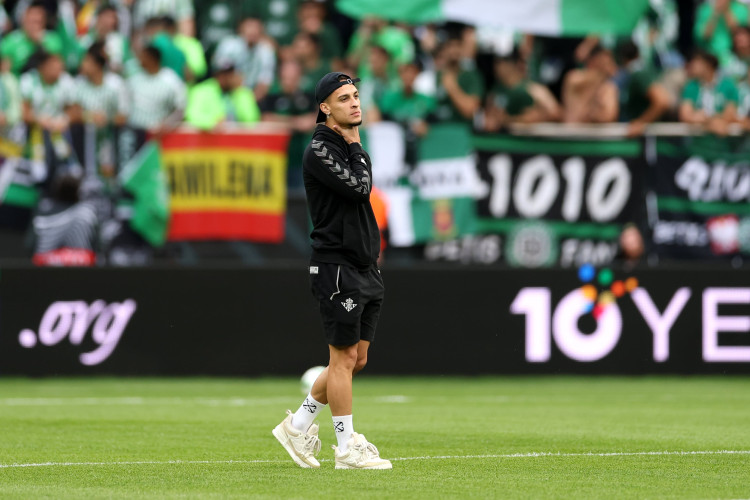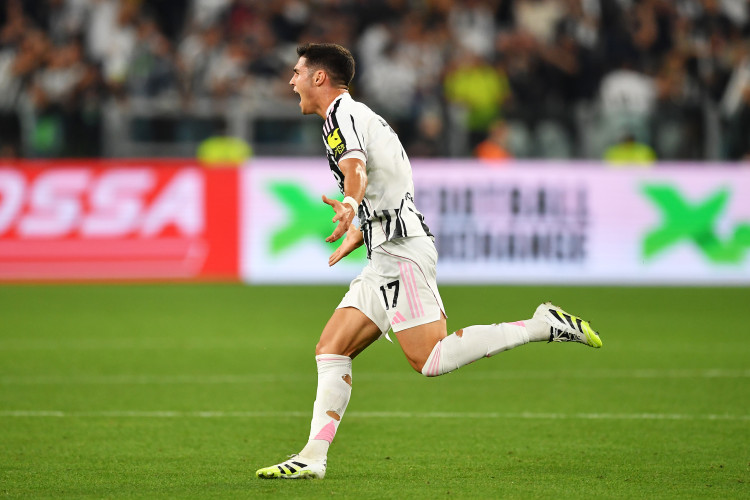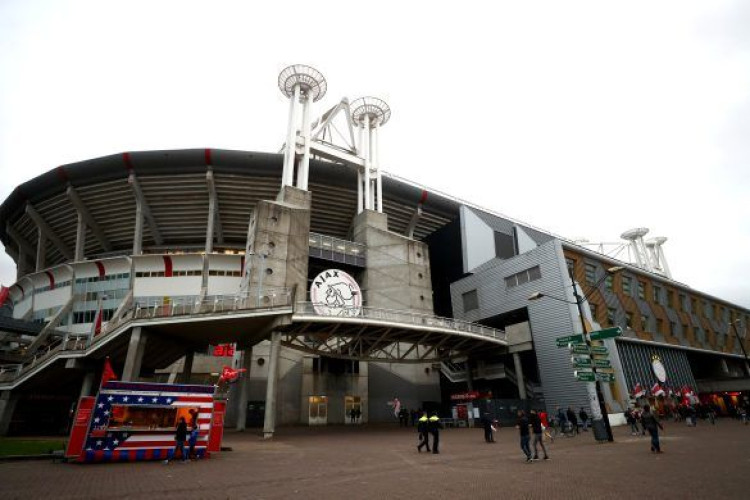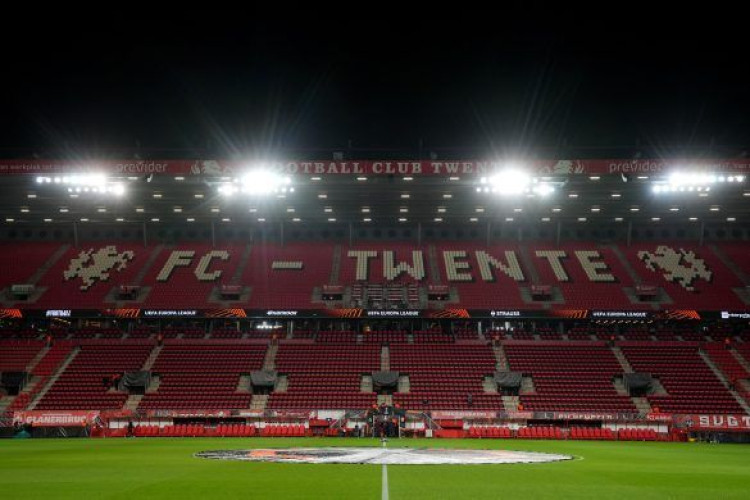
COLUMN: A radical proposal to ‘fix’ the transfer window plaguing football with its ills
Jon Driscoll can be found on social media here, and if you’re hungry for more, tune into his weekly La Liga podcast with Terry Gibson. You can also read more from Driscoll in his two books Get It Kicked and The Fifty.
The transfer window makes no sense.
In its current form it was only ever a grubby, post-Bosman compromise. The European Commission asked, not unreasonably, why humans can be bought and sold like farm animals if they happen to be employed as footballers, and the leagues and their clubs pleaded special consideration. If players were able to give a month’s notice and move employers then how would squads be built and competition be maintained? The solution was a square peg to fill a round hole; the issue of freedom for employees was never adequately resolved. Players simply sign on because the wages are so good.
In the interests of compatibility, a FIFA-wide protocol came to pass in 2002/03 ruling that each league would have two windows in which players could be transferred. Deals could be done at any time, but players could only be registered in those two blocks. For most leagues that means a long summer window and a shorter one mid-season. Promises were made as the new system was sold to the world: it would bring stability for clubs, reduce the power of agents and facilitate a more level playing field. How has that gone, would you say?
Can a system be described as stable if it creates a situation where Getafe registered seven summer signings on deadline day? What has happened to agents’ fees in the last 23 years as the now ludicrously complicated transfer market has come to rely on them while cutting out coaches and managers?

Big clubs fare better, but, hey, what’s new? Note how Real Madrid were able to get their transfer business done early in the summer and allow Xabi Alonso time to work with his squad throughout their Club World Cup-disrupted summer. Look at the Premier League, where Liverpool could stop the wheels of the summer market by holding out on making a second bid for Alexander Isak, who was refusing to play for Newcastle despite being under contract. Newcastle made it clear they wanted Brentford’s Yoann Wissa, who also sat idle, until it was all sorted on the final day. A farcical situation created by the existence of the deadline.
The system has given us a biannual circus. Compare it to a ridiculously complex housing chain, in which multiple deals at a myriad of clubs are locked into a holding pattern that can only be completed together, often on deadline day itself. Of course, you might enjoy circuses, and the two deadline days are full of excitement and jeopardy, but the windows have snubbed out the excitement of random transfers dropping out of the blue. I get it that come the 2nd of September you might be sick of hearing what Fabrizio Romano is tweeting, but that’s only because the gluttony of the window had left you dyspeptic, like a feaster in the last days of Rome.
⚪️🔴😞 Míchel, abatut després del 5-0 al Vila-real
🗣️ "No som un equip ara mateix"
🗣️ "Això és responsabilitat del club també"
🗣️ "Estic molt decebut amb tothom"
🗣️ "És el meu pitjor moment com a entrenador"#VillarrealGirona
📲
— Esport3 (@esport3) August 24, 2025
I cannot imagine coaches and managers want it this way. For one, they must grow sick of fielding questions about who’s coming in and who’s going out. More pertinent is surely that they can’t work with their full squad until September when three games have been won, drawn or lost. Girona suddenly looked much better with Vladyslav Vanat playing as a centre-forward. They really could have done with him in those first three miserable games.
Some managers are sacked before they get their final roster together for the season. You could solve that problem by moving the deadline earlier – or you could scrap it entirely. If you’re willing to pay entry into this circus, consider another: my solution would be one deadline, at the end of March. That would be early enough to stop any suggestion of buying players to influence individual end-of-season games but late enough to stop the circus.
Deadlines don’t make for rational decisions, certainly not artificial ones. Okay, some of those Getafe players had been signed earlier in the summer, and were working with Jose Bordalas and his squad, but how much due diligence had been done on Abu Kamara while he was playing in the English Championship with Hull City? Perhaps lots in this case, but the cynic would laugh at the idea that every deadline day signing has been properly considered, and isn’t the result of panicked calls to agents.

Crucially, it is all superfluous in these days of financial restrictions on clubs. Getafe President Angel Torres slammed La Liga’s notoriously miserly regulations for having to sell Omar Alderete for peanuts to Sunderland, just so his club could register enough players to take to the field and fill the bench at the start of this new La Liga campaign. He later cashed in on Christantus Uche – sold to another Premier League club – and signed on the rest of the squad, all at the last minute.
This summer Manchester United were desperate to get rid of Antony and the Brazilian was determined to join Real Betis. When was the deal completed? On deadline day, of course. Both clubs were holding out until forced into action. The clubs and the player would have benefitted from a move earlier in the summer but the artificial cut-off point meant there were millions at stake and it was worth their while playing a game of dare. Aymeric Laporte, Athletic Club and Al-Nassr have only fortune and FIFA’s unusually forgiving mood to thank that they didn’t lose theirs.
❤️ Eskerrik asko, Athleticzales!
On Tuesday we've got an important meeting at San Mamés ✨
🫵 We'll see you there!#AthleticAlavés #AthleticClub 🦁
— Athletic Club (@Athletic_en) September 13, 2025
A further outlandish claim is that the restricted windows create opportunities for young players because clubs turn to them when hit by injuries in these restricted periods. What happens is that clubs, especially the richer ones, stockpile talent. This has created a whole class of handsomely paid but barely-played footballers, eagerly or otherwise anticipating an injury crisis.
While happy to debate La Liga’s idiosyncratic rules, it is in my view undeniable that their existence removes the chief plank in the case for a transfer window: ensuring financial stability. The financial rules force clubs to complete a complex jigsaw; the transfer window means that jigsaw has to be done in conjunction with every potential transfer rival or partner, and against the clock. The compromise between the football industry and the European Commission never did what it was meant to do: players, or rather their contracts, never stopped being bought and sold. Now the various, fledgling, experimental versions of financial fair play make the transfer window, and its promise of financial stability, obsolete.










